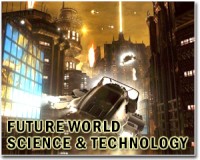 |
Paris (AFP) Nov 10, 2010 Asia, led by China, is fast challenging America, Europe and Japan in spending on scientific research and development but still lags on key criteria of inventiveness, according to a UN report to be published on Wednesday. In its first review of world science budgets in five years, the UN Educational, Scientific and Cultural Organisation (UNESCO) found Asia accounted for 32 percent of gross domestic expenditure in research and development in 2007 compared with 27 percent in 2002. Over the same period, the proportion of researchers in developing countries increased from 30 percent to 38 percent, it said. China alone accounted for two-thirds of this increase, having 1.423 million researchers in 2007. "The bipolar world in which science and technology were dominated by the triad made up of the European Union, Japan and the USA is gradually giving way to a multipolar world," said UNESCO Director General Irina Bokova in a foreword to the report. Europe, the United States and China each contribute 20 percent of the world's researchers, followed by Japan, with 10 percent, and Russia, with seven percent, the report found. From 2002 to 2008, developing countries boosted from 16 percent to 25 percent their share of studies published in scientific journals, a benchmark of scientific credibility, it said. China's share alone more than doubled, from 5.2 percent to 10.6 percent. However, Asia still lagged on two key measures of scientific stature and inventiveness. Researchers from the United States, Europe and Japan were given far more "citations" -- references in published studies that denote ground-breaking work -- than counterparts from Asia. They also claimed the lion's share of applications filed with the US, European and Japanese patent offices, which have a high quality rating. Another worry for developing countries is the brain drain of talent to rich countries, although this may be attenuated by cutbacks there since the 2008 financial crisis. The report swung the spotlight on the benefit of the Internet in spurring scientists in poor countries. Access to online information "is one of the most promising new trends of the Millennium," it said. It cited figures that the share of world gross domestic product (GDP) devoted to R&D was unchanged at 1.7 percent in 2007 compared with 2002. In volume terms, though, there was a huge rise, from 790 billion dollars to 1,146 billion, mirroring the growth of the world's economy. The figures comprise both public and private sector spending and cover fundamental as well as applied research in industry and technology. The previous UNESCO Science Report appeared in 2005.
Share This Article With Planet Earth
Related Links Space Tourism, Space Transport and Space Exploration News
 Sony presses 'stop' on Walkman in Japan
Sony presses 'stop' on Walkman in JapanTokyo (AFP) Oct 25, 2010 After three decades and more than 220 million units, Sony has stopped selling its Walkman cassette player in Japan, the company said Monday, admitting the gadget could not keep up in the digital age. Cherished by a generation of joggers, school children and music fans since its launch in 1979, the Walkman revolutionised the way people listened to music but has since been overtaken by another ... read more |
|
| The content herein, unless otherwise known to be public domain, are Copyright 1995-2010 - SpaceDaily. AFP and UPI Wire Stories are copyright Agence France-Presse and United Press International. ESA Portal Reports are copyright European Space Agency. All NASA sourced material is public domain. Additional copyrights may apply in whole or part to other bona fide parties. Advertising does not imply endorsement,agreement or approval of any opinions, statements or information provided by SpaceDaily on any Web page published or hosted by SpaceDaily. Privacy Statement |